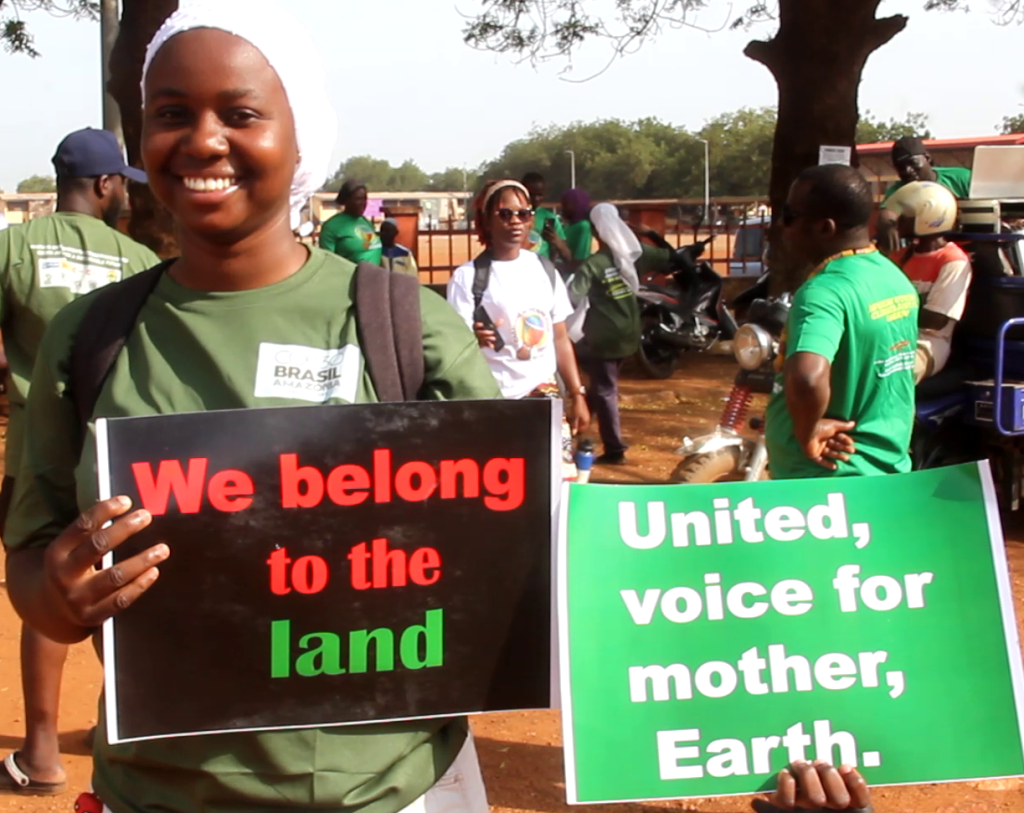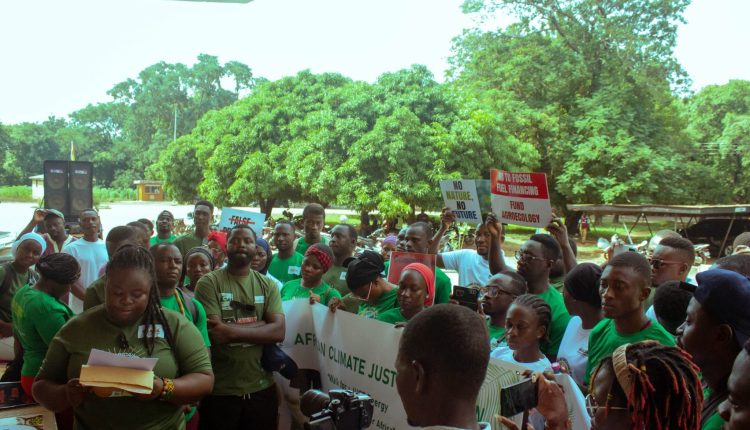Africa Climate Justice Caravan Demands Action from Wealthy Countries: Petitions Governments for Accountability
The Center for Opportunities and Rural Development (CORD), in collaboration with its partners, has presented a joint declaration on climate change to the Northern Regional Minister at the Northern Regional Coordinating Council.
The petition, titled “African Caravans for Climate Justice Joint Declaration,” calls for urgent action to address the climate crisis in Africa.
It contains several key demands, including calls for wealthy countries and African governments to take immediate and meaningful steps to tackle the climate crisis. The coalition urged countries to scale up climate financing efforts by providing substantial support to nations hardest hit by climate change and to report climate financing on a case-by-case basis.
This transparency, they noted, is crucial to ensuring that funds are allocated effectively and reach those who need them most.
The group also called on wealthy countries to commit $5 trillion annually to meet the estimated financial needs required to combat the climate crisis and to settle the climate debt owed to vulnerable countries.
The petition was presented to the Northern Regional Minister, Ali Adolf John Mburudiba, by Esther Nyamekye Opoku, Project and Policy Director at the Center for Opportunity and Rural Development (CORD Ghana), on behalf of partners and interest groups championing climate justice.
The coalition believes that this significant investment is essential to support countries disproportionately affected by climate change, despite contributing the least to global greenhouse gas emissions.
They demanded that wealthy countries unlock the means of implementation by providing adequate and predictable finance, as well as technology transfer, to support adaptation and energy transitions in vulnerable countries. This support, they explained, would enable these countries to develop and implement effective climate strategies, thereby reducing their vulnerability to climate-related disasters.
The coalition also advocated for taxing polluting corporations and imposing higher tax rates on their excess profits to generate revenue for climate action. These measures aim to hold corporations accountable for their role in contributing to climate change and to mobilize additional resources for climate finance. By implementing such measures, wealthy countries can play a more significant role in supporting global efforts to mitigate the impacts of climate change.
Esther Opoku, who read the coalition’s demands, called on African governments to take decisive action to address the climate crisis. One of the key responsibilities of African governments, she noted, is to defend the interests of their populations by securing a specific target of $1.3 trillion dedicated to sub-Saharan Africa for climate finance.

This funding, she emphasized, is critical for supporting climate change adaptation and mitigation efforts across the region, and African governments must advocate for this financial commitment to be met.
She further urged African governments to activate the polluter pays principle, making wealthy countries pay their climate debt to raise climate finance for essential initiatives such as energy transition, food systems transformation, and climate adaptation.
By holding polluters accountable and mobilizing climate finance through this principle, she observed, African governments can ensure that the costs of climate change are borne by those most responsible for it.
Additionally, the coalition pleaded with African governments to ensure fair, debt-free financing for loss and damage, climate adaptation, and mitigation to support communities hardest hit by the climate crisis. They stressed that this involves providing financial support without imposing burdensome debt on vulnerable countries and communities, allowing them to focus on building resilience and adapting to the impacts of climate change without being overwhelmed by financial obligations.
The coalition believes that by prioritizing fair and debt-free financing, African governments can help protect the most vulnerable populations and support sustainable development.
They also emphasized the need for active and meaningful participation from those most affected by climate change — including indigenous peoples and internally displaced persons — in decision-making and implementation processes.
Receiving the coalition’s petition at the forecourt of the Northern Regional Coordinating Council, Ali Adolf John Mburudiba, the Northern Regional Minister, expressed gratitude to the coalition, led by young people.
The minister commended them for their efforts in promoting climate change resilience and pledged to collaborate with Metropolitan, Municipal, and District Assemblies (MMDAs) to combat climate change in the region.
According to the minister, climate change is a global issue requiring collective action, and he assured the group of the NRCC’s commitment to supporting initiatives that address this pressing concern.



